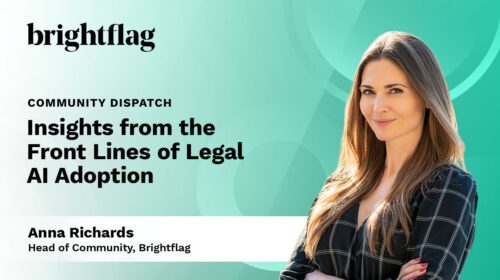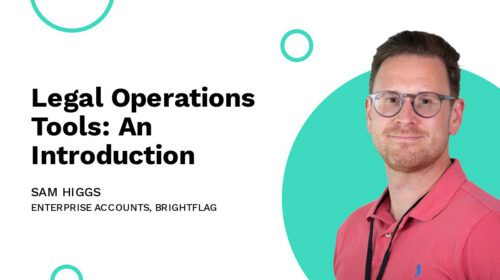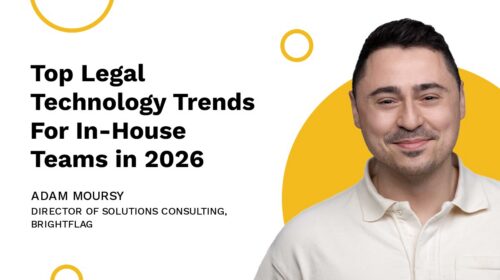Why ISO/IEC 42001 Certification is Important for Legal AI Vendors
As in-house legal departments accelerate their evaluation of AI-powered tools, trust, compliance, and data security are non-negotiable.
Legal teams operate in a high-stakes environment—working with sensitive data under increasing regulatory scrutiny. In this context, it’s not enough for AI technology providers to offer innovation—they must also demonstrate responsibility.
That’s where ISO/IEC 42001 comes in.
ISO/IEC 42001 is the first globally recognized standard for Artificial Intelligence Management Systems (AIMS), providing legal departments with a clear benchmark to assess whether their legal tech vendors are managing AI systems in a secure, transparent, and accountable way.
What ISO/IEC 42001 Certification Means
ISO/IEC 42001 was specifically designed for the governance of AI, providing a framework that organizations designing, deploying, and managing AI systems must follow to become certified.
Key areas that need to be addressed to obtain ISO/IEC 42001 certification include:
- Transparent and explainable decision-making
- Bias detection and mitigation
- Governance for continuously learning AI models
- Ethical use of data in machine learning environments
- System accountability and auditability
Why ISO/IEC 42001 Matters When Evaluating Legal AI Technology Solutions
If you’re part of an in-house legal team evaluating AI-powered solutions, ISO/IEC 42001 gives you a clear, auditable way to assess risk and compliance readiness—all within a structured international framework.
Here’s why that matters:
- It supports procurement due diligence: ISO/IEC 42001 compliance acts as a shorthand for responsible AI governance—streamlining vendor vetting and giving legal teams confidence in their final selection.
- It protects the organization from reputational and regulatory risk: With clear guidelines on bias mitigation, data governance, and model transparency, ISO/IEC 42001 helps ensure any AI system your department adopts will withstand scrutiny from auditors, boards, or regulators.
- It aligns with legal’s broader risk management mandate: Legal departments are often the critical protectors of the company when it comes to approving technology. Using ISO/IEC 42001 as part of your AI evaluation process ensures your team is at the cutting edge when it comes to identifying and mitigating legal and ethical risks associated with AI usage.
By prioritizing vendors that are ISO/IEC 42001 compliant, legal teams can better align technology choices with their core responsibilities: protecting the company, managing risk, and upholding ethical standards.
Brightflag’s ISO/IEC 42001 Compliance
At Brightflag, we believe responsible use of AI is essential—especially when it comes to legal work.
That’s why we’ve worked hard to join the ranks of a very small group—including Microsoft, Google, Anthroptic, Zendesk and Autodesk—who have achieved ISO/IEC 42001 certification.
Brightflag has integrated ISO/IEC 42001’s principles across both our AI product development and our internal governance. This certification reflects our ongoing commitment to:
- Protecting customer data and maintaining robust information security
- Deploying AI that is transparent, auditable, and trustworthy
- Continuously improving our AI systems in line with legal, ethical, and operational best practices
- Ensuring that all newly developed AI systems—as well as new applications of current AI systems—will not introduce additional risk to users
From automated invoice review to generative AI matter summaries, Brightflag’s AI-powered features are built on a foundation of integrity, transparency, and security.
Common Questions About ISO/IEC 42001
Is ISO/IEC 42001 mandatory?
Not currently—but it’s quickly becoming a de facto standard for evaluating AI vendors in regulated industries.
Is ISO/IEC 42001 just for tech companies?
No. Any organization that builds, deploys, or relies on AI—such as in-house legal teams evaluating AI tools—can benefit from aligning with ISO/IEC 42001.
How is ISO/IEC 42001 different from ISO/IEC 27001?
ISO/IEC 27001 focuses on information security. ISO/IEC 42001 focuses specifically on the safe and ethical management of AI systems.
Does ISO/IEC 42001 apply to all types of AI?
Yes. From rule-based automation to generative AI models, the framework is designed to be flexible across use cases and maturity levels.
Final Thoughts
Legal departments evaluating AI solutions face a difficult balance: embracing innovation while managing risk. ISO/IEC 42001 helps tip that balance toward trust—ensuring that the AI tools you adopt meet the same rigorous standards you hold your own team to.
At Brightflag, we’re proud to be among the first legal technology providers to meet this standard—and we’re committed to helping legal teams adopt AI without compromising on governance, compliance, or control.
If you’re exploring AI solutions and want to understand how Brightflag ensures trustworthy AI across its platform, book a demo with us today.



